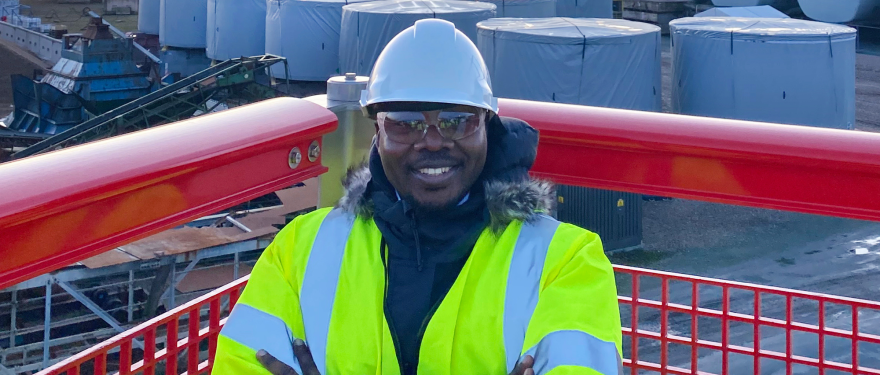As I packed my bag to return to Boston after an exciting 2 weeks in Denmark and the Netherlands, I could not help but reflect on my experience there. I traveled to Europe to participate in the Immersive Field Course on Decarbonization and Sustainability ― an MBA course that gives students an opportunity to get out of the classroom and put the skills they’ve learned into practice. When I first stumbled upon this course, I watched the video made by one of the professors and said to myself “I will definitely take this class.” I could tell that this experiential learning opportunity was so connected to the type of future I imagined for the coming decades. Although the time went by so quickly, I appreciated how much I saw and learned in such a short amount of time. I left feeling inspired by what other countries are doing in the sustainability space.
As a young petroleum engineering student back in 2012, I was hoping to graduate and work in the oil and gas industry in Nigeria. My goal was to contribute to eradicating energy poverty and improving general welfare. At that time, petroleum accounted for roughly 80% of the government’s revenue, making it a strategic commodity. However, I graduated in 2016 and realized that oil and gas may not be the career I was looking for due to the industry’s adverse environmental impact. The world was starting to move on to cleaner and more sustainable energy. I was deeply confused as it felt like I had just wasted 5 years studying for a degree that I was never going to put into practice. Nonetheless, I figured I would at least use the skills I gained in school to find a different solution to Nigeria’s energy issues. Hence, I decided to explore a career in management consulting for a few years and then in renewable energy operations before enrolling at Harvard Business School.
At HBS, I continued to search for opportunities to gain practical insights into decarbonization and sustainability. In a bid to find an answer, I joined the energy clubs at both HBS and MIT. Fast forward to today, the IFC (Immersive Field Course) has opened my eyes to the realm of possibilities for sustainable consumption of the earth’s resources. It is one thing to study the topic theoretically in the classroom but the opportunity to witness some of the processes in person is priceless. In our 12 days in Denmark and Netherlands, we visited 16 manufacturing sites ranging from industrial manufacturers of plastic and machines to shipping companies and producers of food, flowers, and other consumables. Across all these companies, the one commonality was low-carbon operations and responsible consumption of scarce resources. Even at a national level, I saw first-hand how Denmark has successfully achieved a 70% renewable energy mix across the entire country! Denmark may be a small country, but this significant energy mix transformation should serve as motivation for all towards a low-carbon future.
Overall, I was deeply inspired to see people actively deploying resources to drive sustainability initiatives, with the potential for more participants to come to the table and collaborate in the future. I am excited to continue to explore this space and build a career in it, and I especially appreciate our professors Willy Shih and Mike Toffel for taking the time to curate this experience for us. As someone born to teachers (going back three generations), I know we can never thank our faculty enough for all they do. For me, they have helped renew my hope that the path to a low-carbon future is going to be a promising and rewarding one.

